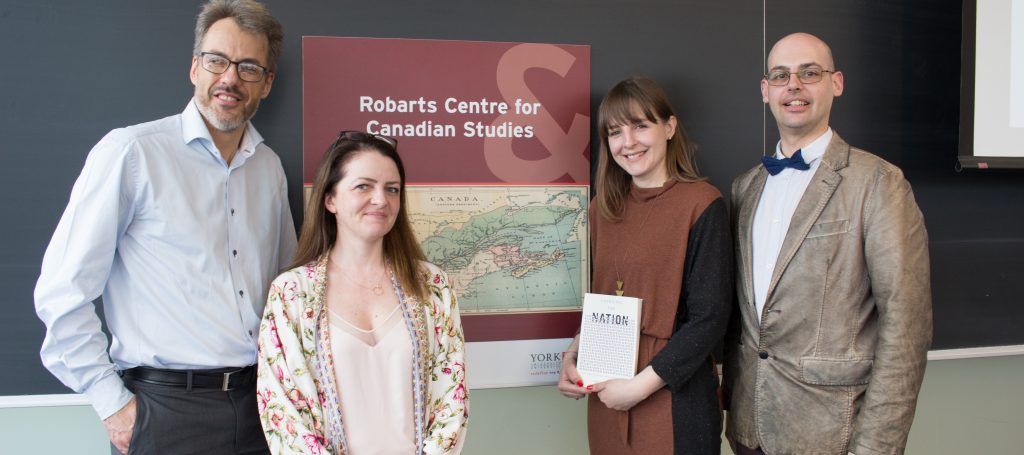A new book by Glendon Campus sociology Professor Emily Laxer explores novel interpretations of public debates over minority religious signs in the public sphere in Quebec and France. A launch event for the book, titled Unveiling the Nation. The Politics of Secularism in France and Quebec, took place on April 23 at Glendon. The event was sponsored by the Groupe de recherche sur le Canada francophone, Francophile et en français, a research group affiliated with the Robarts Centre for Canadian Studies at York University.
At a time of heightened debate in the scope of global politics of religious diversity, Unveiling the Nation sheds critical light on the way party politics and its related instabilities shape the secular boundaries of nationhood in diverse societies.

Over the past few decades, politicians in Europe and North America have fiercely debated the effects of a growing Muslim minority on their respective national identities. Some of these countries have prohibited Islamic religious coverings in public spaces and institutions, while in others, legal restriction remains subject to intense political conflict. Seeking to understand these different outcomes, social scientists have focused on the role of countries’ historically rooted models of nationhood and their attendant discourses of secularism.
Laxer’s Unveiling the Nation problematizes this approach. Using France and Quebec as illustrative cases, she traces how the struggle of political parties for power and legitimacy shapes states’ responses to Islamic signs. Drawing on historical evidence and behind-the-scenes interviews with politicians and activists, Laxer uncovers unseen links between structures of partisan conflict and the strategies that political actors employ when articulating the secular boundaries of the nation. In France’s historically class-based political system, she demonstrates, parties on the left and the right have converged around a restrictive secular agenda to limit the siphoning of votes by the ultra-right. In Quebec, by contrast, the long-standing electoral salience of the “national question” has encouraged political actors to project highly conflicting images of the province’s secular past, present and future.
Laxer is a sociologist specializing in political sociology, immigration, citizenship and nationalism, and gender. Her research broadly examines how contests for political power shape the incorporation of ethno-religious minorities in large-scale immigration countries. Her work has been published in such peer-reviewed journals as Ethnic & Racial Studies, Journal of Ethnic and Migration Studies, Nations & Nationalism, and Comparative Studies in Society and History.

